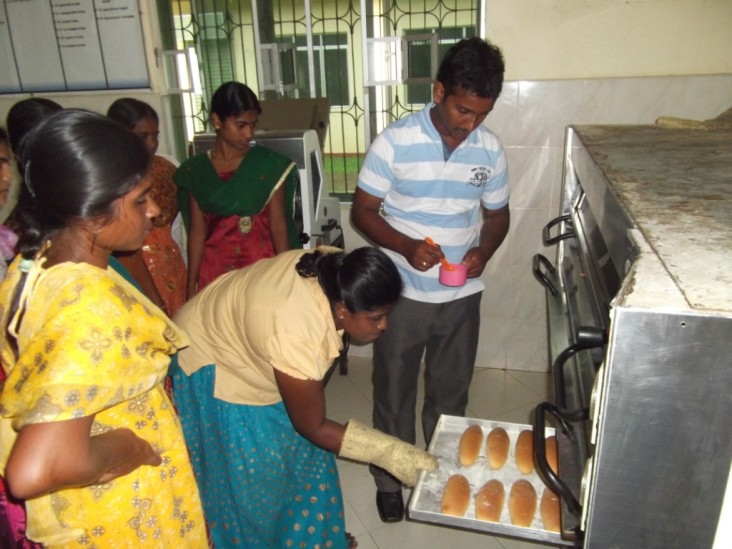
Through USAID assistance, a new economic corridor is emerging in a formerly isolated and war-torn part of eastern Sri Lanka. The Kiran area was cut off from the outside world during Sri Lanka's nearly 30-year civil war between the government and Tamil rebels, and its population today is largely unskilled with limited livelihood opportunities. As part of its work to help such communities recover and become more resilient, USAID renovated 20 kilometers of rural road, completed in February 2013, connecting four previously isolated villages with 1,400 residents to improve their access to markets and income-generating endeavors.
With their roads in disrepair, Kiran residents felt isolated and abandoned.
“Having 20 years of government servant experience, I can say that the officials and communities of this area suffered due to their lack of mobility and the conditions of the interior roads,” said Weerakutty Vadivel, the leader of Muruthanai village.
The rehabilitated road is a tangible sign of stability and development in this community, but it also has substantial economic implications, providing area farmers and small business owners with better market access. Dairy farmers in previously inaccessible villages, for example, are now selling their milk to outsiders.
“The project actually connects marginalized people with the outside world, and increases their chances to sell their products and make a real income,” explained Vadivel.
USAID has also worked directly with community groups to develop new income-generating activities that will help them take advantage of this opportunity. Most recently, the Agency worked with a local women’s group to open a bakery, providing relevant skills, equipment and facilities to its members.
“Now, we are confident that we can improve our economic status … and villagers can now get bakery items next door when they used to have to travel for miles. The road has improved so we can add a delivery service too – soon, people can get goods on their doorstep,” said Somalini Pulenthiran, a member of the society.







Comment
Make a general inquiry or suggest an improvement.